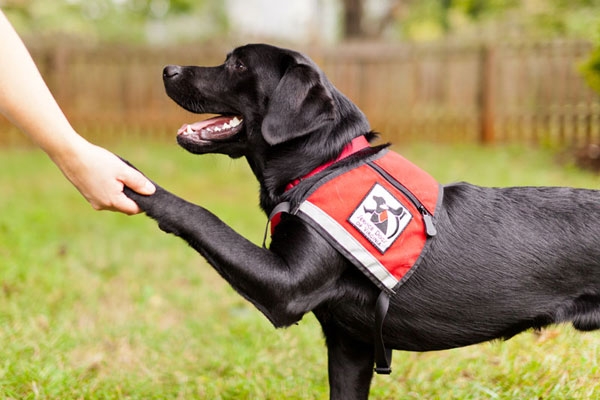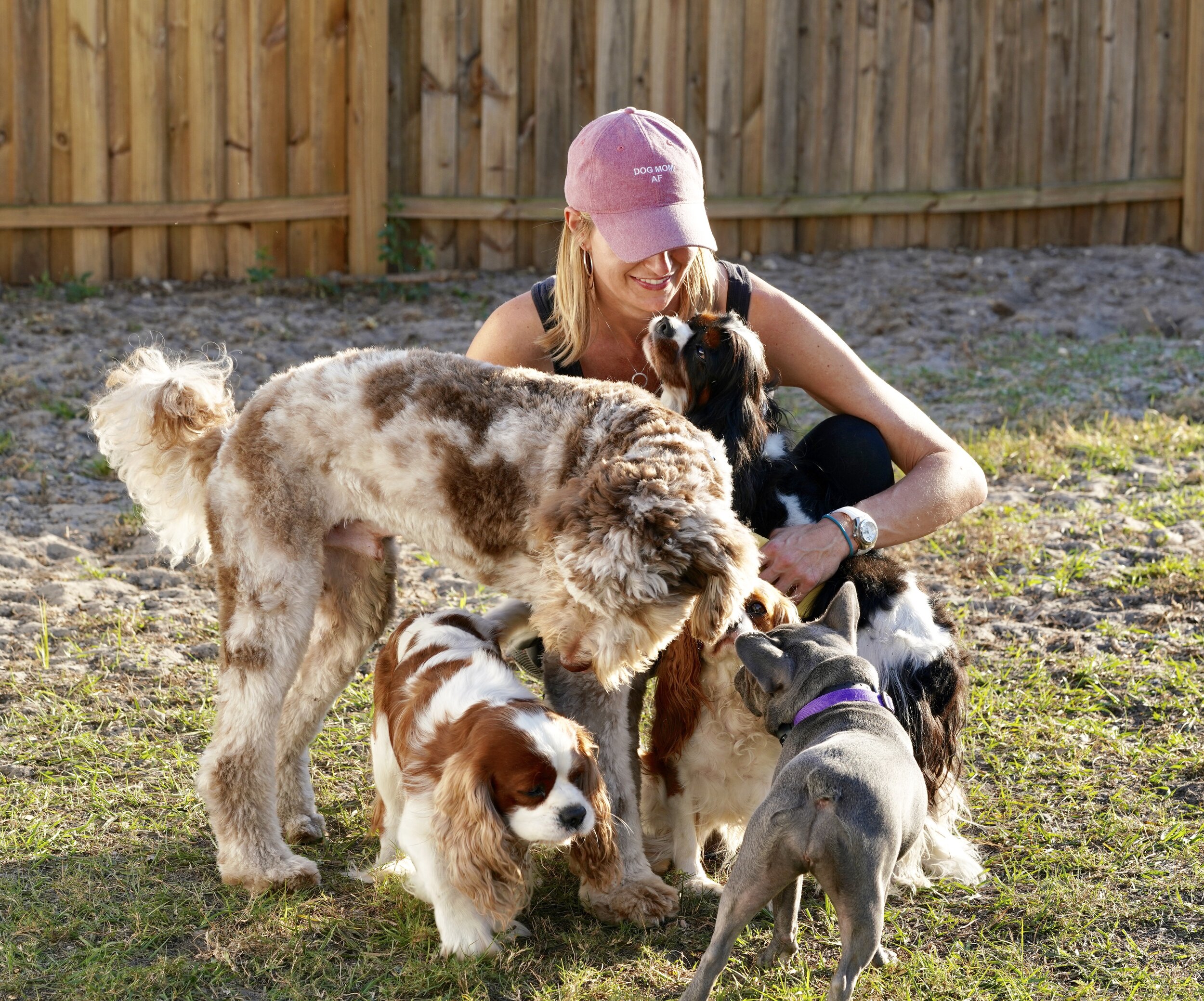Top Pet Educating Methods for Every Phase of Your Pet's Life
Efficient pet training is essential at every stage of a canine's life, as each phase presents special obstacles and opportunities for growth. It is crucial to recognize that training ought to evolve along with a pet dog's development, guaranteeing that methods continue to be pertinent and effective.
Young Puppy Training Essentials
Puppy training fundamentals prepared for a mannerly grown-up pet and entail several essential elements that ought to not be neglected. The initial phase of training focuses on establishing a strong bond in between the pup and its proprietor, which is essential for reliable communication. Socialization is extremely important; exposing puppies to different atmospheres, individuals, and various other pets assists them create self-confidence and adaptability, lowering the chance of behavior issues later in life.
Standard commands, such as sit, stay, and come, develop the foundation of obedience training. Utilizing positive reinforcement techniques, such as treats and appreciation, encourages wanted behaviors and cultivates a positive understanding experience. Consistency in commands and training sessions is essential, as young puppies thrive on regular and structure.
Additionally, residence training is a crucial element of puppy training. Developing a routine routine for shower room breaks and utilizing marked areas can help minimize mishaps and promote great routines. Generally, a well-rounded approach to puppy training, incorporating obedience, socializing, and residence training, sets the phase for a well-adjusted grown-up canine, guaranteeing a harmonious connection between the family pet and its owner.
Adolescent Actions Management
As young puppies mature into teens, their habits can change considerably, typically providing brand-new obstacles for proprietors. This developing phase, generally happening between 6 months and 2 years, is noted by enhanced power degrees, inquisitiveness, and a blossoming feeling of self-reliance. Understanding these adjustments is vital for effective habits monitoring.
Teenagers might show defiant tendencies, such as neglecting commands they previously understood or taking part in damaging actions. Consistency in training remains vital; reinforcing learned behaviors via positive support can aid neutralize these obstacles. Brief, interesting training sessions are vital to keep their passion and emphasis.

In addition, establishing a structured routine can substantially boost a teenage dog's complacency. Normal workout is essential to direct their energy favorably, lowering the chance of undesirable behaviors. By employing these strategies, owners can efficiently navigate the complexities of adolescent behavior, fostering a well-adjusted, delighted canine friend.
Grown-up Pet Obedience Strategies

Positive support remains a crucial technique; gratifying etiquette with deals with, appreciation, or playtime encourages conformity. Uniformity is essential; the exact same commands and incentives should be utilized by all household participants to avoid confusion.
Including training into daily routines can likewise be efficient. For circumstances, technique commands during strolls or dish times, permitting training to mix perfectly into daily life. Participating in organized tasks, like dexterity programs or obedience Dog Training For Dogs classes, can additionally boost a pet's this skills while providing beneficial socializing opportunities.
It is crucial to identify that grown-up pet dogs might additionally display stubbornness or complacency. Changing training methods to maintain their interest, such as varying benefits or introducing new commands, can help sustain motivation. Generally, a recurring dedication to obedience training will certainly foster a well-behaved and balanced adult pet.
Elderly Dog Adaptation Approaches
Recognizing the distinct demands of elderly canines is crucial for guaranteeing their convenience and health. As pets age, they might experience a decrease in flexibility, vision, and cognitive feature, necessitating customized adaptation strategies.
First, consider modifying the living setting. Make certain that the home is safe and obtainable; remove barriers and offer non-slip surface areas to avoid drops. In addition, consider using actions or ramps to assist them access their preferred areas.
Second of all, exercise ought to be adjusted to represent decreased stamina and joint wellness (Dog Training For Dogs). Take part in much shorter, much more constant walks, and integrate mild activities like swimming, which can be advantageous for arthritic joints
Moreover, mental excitement remains critical. Use basic puzzle playthings or participate in scent work to maintain their minds sharp, while staying clear of overwhelming jobs that might annoy them.
Finally, normal veterinary examinations are crucial to keep track of health and wellness adjustments and readjust treatment regimens accordingly. By executing these adaptation methods, you can enhance the lifestyle for your elderly dog, ensuring they age gracefully and easily.
Lifelong Knowing and Enrichment
While canines of any ages benefit from discovering and psychological excitement, long-lasting enrichment is particularly important for maintaining cognitive health and emotional health in both elderly and more youthful pet dogs. Engaging activities not only boost a pet's lifestyle yet additionally enhance the bond in between the canine and its proprietor.
Enrichment can take numerous forms, including interactive Visit This Link toys, problem feeders, and scent job, which promote a pet's detects and encourage problem-solving. Regular training sessions, incorporating brand-new commands or techniques, keeps their minds sharp and promotes a feeling of achievement. Socialization with other dogs and individuals is similarly important, as it helps protect against behavioral concerns and cultivates flexibility.
Moreover, including exercise right into a canine's regimen is crucial for total health and wellness. Activities like agility training, bring, or long strolls give both physical and mental stimulation, ensuring pets stay delighted and involved.
Finally, think about differing the environment by introducing new locations for walks or playdates. This adjustment can reignite a canine's inquisitiveness and interest for exploration. Lifelong discovering and enrichment not only add to a meeting life however likewise promote an unified relationship with your canine buddy.
Conclusion
Efficient dog training methods progress throughout a dog's life, dealing with the one-of-a-kind needs of each developmental stage. Emphasizing routine psychological excitement, socialization, and physical exercise cultivates a well balanced and meeting life for pet dogs.
Reliable pet dog training is important at every stage of a dog's life, as each stage offers one-of-a-kind obstacles and possibilities for development.Puppy training fundamentals lay the foundation for a well-behaved adult canine and involve several crucial components that must not be overlooked. Generally, an all-around method to puppy training, including socialization, residence, and obedience training, sets the phase for a well-adjusted adult canine, ensuring an unified relationship between the pet and its owner.
Numerous pet dog owners might locate that grown-up dogs, while usually more steady in actions than their adolescent counterparts, still need constant training to keep obedience and great manners.Reliable dog training techniques progress throughout a pet's life, dealing with the special needs of each developing phase.